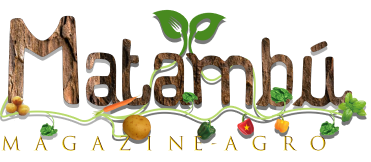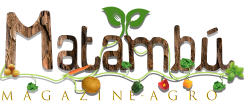[ad_1]
GET IT produce being loaded onto a supply automobile.
GET IT has been working in Rwanda since 2014; first as a fruits, greens and dry items distributor and later including major agriculture and processing. In 2019, simply earlier than the pandemic hit, founder Lauren Russell Nkuranga moved into the place of chairman and Mark Sproston was appointed CEO. Jeanette Clark spoke to him about including income from house deliveries to get via the Covid-19 droop, logistics challenges and progress alternatives in the area.
GET IT was based in 2014 by American entrepreneur Lauren Russell Nkuranga, after shifting to the nation two years previous to work for the Nike Foundation. She has since constructed the corporate into a sizeable distributor of fruits and greens in Rwanda.
In early 2018, GET IT invited Mark Sproston – a South African businessman who had over 25 years’ expertise in the food distribution trade – to do an evaluation of the business and make suggestions on what it may do to grow to be extra environment friendly and establish alternatives for progress.
“The original request was for a detailed assessment of the business, which I did. They then asked that I assist in implementing some of these changes. I also stepped in as interim CEO when Lauren was on maternity leave.” A 12 months later, he was requested to hitch the crew completely as CEO.
Up up to now, GET IT had proven wholesome progress inside the borders of Rwanda. The board appointed Sproston with the aim of rising operational capability and gross sales whereas Russell Nkuranga would deal with fundraising, governance and constructing the street map for enlargement.
Things had been going nicely – the corporate was actively on the lookout for funding to develop its operations and take the leap into regional business – when Covid-19 hit.

The firm cultivates its personal chillies in Rwanda.
“It was horrendous,” he says. “April generally shows poor revenue because it is genocide memorial month. However, we lost close to 90% of our turnover in April 2020 when Rwanda went into lockdown. Borders were closed; every single establishment was shut. We needed to diversify, and quickly.”
That was when the corporate, which primarily did food procurement and distribution for resort and hospitality shoppers on the time, went into house deliveries.
An extra income stream
Home deliveries was initially one of many founder’s targets; prospects would place orders through SMS and obtain the merchandise the following day. However, massive eating places started to make use of the service and GET IT adjusted its business mannequin to fill the clear hole for a industrial food distributor.
During the lockdown in 2020 house deliveries boomed. GET IT obtained a allow from the federal government as an important service supplier below Covid-19 restrictions. “Within a period of about three months, we picked up 500 home delivery clients,” says Sproston. “In the following three months, we managed to recover around 70% of our revenue.”
As financial exercise step by step recommenced throughout 2020, the corporate nonetheless serviced house deliveries and it makes up about 20% of its home income in the present day.
Sproston admits house deliveries by itself would by no means make the corporate viable; solely when it’s mixed with bulk deliveries to accommodations and eating places.

Produce in chilly storage.
Growth in unsure instances
According to Sproston, the corporate tailored nicely to the modified business setting. They learnt to function in troublesome situations and it achieved its highest month-to-month turnover for 5 months in a row throughout partial lockdown. “We have continued on this upward trend.”
Originally, the corporate procured solely from smallholder farmers, however later began its personal managed farms to make sure safety of provide. They kicked off with ginger and now additionally domesticate chillies, turmeric, garlic and French beans. Exports of the produce from these farms – to markets like South Africa, the US and India – have grown considerably.
“Bearing in mind I didn’t come from an agricultural background, I had to learn about farming quickly,” Sproston remembers in regards to the time when he joined. It’s been a steep studying curve, contemplating the pandemic’s influence. In truth, GET IT couldn’t full its first export consignment of ginger due to pandemic restrictions. “The borders closed on the day we delivered the product for export.”
Yet, GET IT nonetheless managed to export eight tonnes of produce in the primary 12 months. In 2022, it has already despatched 50 tonnes overseas and is aiming for one more 60 tonnes earlier than the tip of the 12 months. Our goal is 300 tonnes in 2023,” he says.
Cold chain and its challenges
The purpose is for GET IT to grow to be a food distribution service, which caters for all merchandise, irrespective of the temperature required when transporting the products.
“Currently, if you look at the region, there is nobody of substantial size providing distribution services for fresh, refrigerated produce, frozen products and goods that must be kept at room temperature. We want to be that player.”

GET IT manages its personal farms and additionally buys from smallholders.
He believes their largest problem is managing the merchandise’ chilly chain successfully and extending the shelf-life. The firm makes use of a mixture of third-party suppliers, in addition to its personal chilly storage and refrigerated autos for distribution.
Getting the produce from the farms (its personal or the smallholder farmers’) stays difficult, significantly for fragile fruits and greens, like lettuce and cherry tomatoes. “For these products, we send a refrigerated truck, which brings them to our processing facility in Kigali to be washed, sorted, cut and trimmed. We are also investigating various shelf-life extension options such as gas flushing or better packaging,” says Sproston.
The nation has a extreme scarcity of business refrigerated autos and this presents a business alternative. “At one point there were only six refrigerated trucks available for commercial rental in Kigali. While there are more now, it is still not enough, and we often have to rent directly from private operators. I have been approached by various players in the region who are considering a business to address this shortage. I expect a large player on the ground very shortly,” provides Sproston.
Growth alternatives via processing and new markets
For the long run, GET IT has its sights set on Kenya and on new alternatives in much more value-added processing, reminiscent of photo voltaic drying. “If you are drying or producing concentrated extracts from ginger and chillies, your margins are a lot better than if you export the fresh product,” he explains. “If you can export at high value and lower weight, it’s more profitable to export from a landlocked country.”
The firm advantages from the work achieved by the National Agricultural Export Development Board, a authorities company that assists in facilitating export linkages between home firms and importers overseas.
“We work with government and also actively search for opportunities and new markets ourselves. For example, export into Kenya is a direct result of our initial imports from there. It was inefficient to send empty trucks to collect the imported products and we searched for a client on that side of the border to whom we could supply goods.”
GET IT CEO Mark Sproston’s contact data
Contact particulars are solely seen to our Monthly/Annual subscribers. Subscribe right here.
Related articles
[ad_2]
Source link










